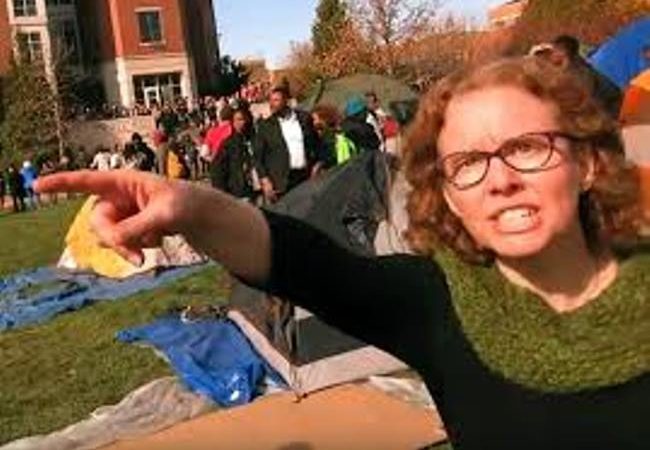The Supreme Court’s decision this week in Matal v. Tam sent a clear warning to government officials who seek to curtail speech they deem offensive: We won’t let you do it!
The warning was particularly pointed for the PC Police at state universities who try to close down viewpoints they find “offensive.”
A federal law ordered the Patent and Trademark Office to refuse to register any trademark deemed disparaging of any person or group. In a higher profile case than Matal v. Tam, the trademark office canceled the registration of the Washington Redskins football team because some Indians found the name disparaging. And in Matal v. Tam, the trademark office denied an Asian American rock band’s request to register the name “The Slants.” (The band had assumed the name as a nose thumbing gesture toward the racial slur.)
But in Matal v. Tam, the justices sided unanimously with the band and against the government. They struck down the “no registration” law as a violation of the First Amendment’s free speech guarantee.
The decision is important for several reasons.
First, the government had argued that because it was censuring only “negative” (disparaging) expressions, its conduct was sufficiently evenhanded to evade the First Amendment. But the court pointed out that negative viewpoints are legitimate, too. Criticism deserves as much constitutional protection as praise.
Second, the court rejected firmly a claim a federal judge had accepted in the Redskins case: that government registration converted a trademark from private to government speech. Because government speech is outside First Amendment protection, reclassifying it this way would render the trademark outside First Amendment protection.
The notion that when government protects a private activity the activity becomes that of the government has been promoted by statist legal commentators for many years. The idea is to subject private conduct to more political and judicial control. By this reasoning, for example, issuance of a copyright would give the government power to censure the material copyrighted.
But in Matal v. Tam, the justices held that trademarks remain private expression even after they are registered.
Third, the case may presage a judicial retreat away from the constitutionally erroneous doctrine whereby the courts give less protection to commercial speech than to political speech. The doctrine is erroneous because Founding Era evidence shows that commercial messages were considered as much “free speech” as political commentary.
In Matal v. Tam, the justices held that the “no disparagement” statute violated even the weaker rules protecting commercial speech. But comments endorsed by all the justices communicate some doubt about whether the commercial/political divide makes sense. In fact, Justice Clarence Thomas argued for abolishing the divide altogether.
Finally, Justice Anthony Kennedy, in an opinion endorsed by all three of the most liberal justices, sent a clear warning to the PC police:
The danger of viewpoint discrimination is that the government is attempting to remove certain ideas or perspectives from a broader debate. That danger is all the greater if the ideas or perspectives are ones a particular audience might think offensive . . . . Indeed, a speech burden based on audience reactions is simply government hostility and intervention in a different guise. The speech is targeted, after all, based on the government’s disapproval of the speaker’s choice of message. And it is the government itself that is attempting in this case to decide whether the relevant audience would find the speech offensive. For reasons like these, the Court’s cases have long prohibited the government from justifying a First Amendment burden by pointing to the offensiveness of the speech to be suppressed.
In other words, the fact that some people are offended is no reason to suspend the Constitution.








